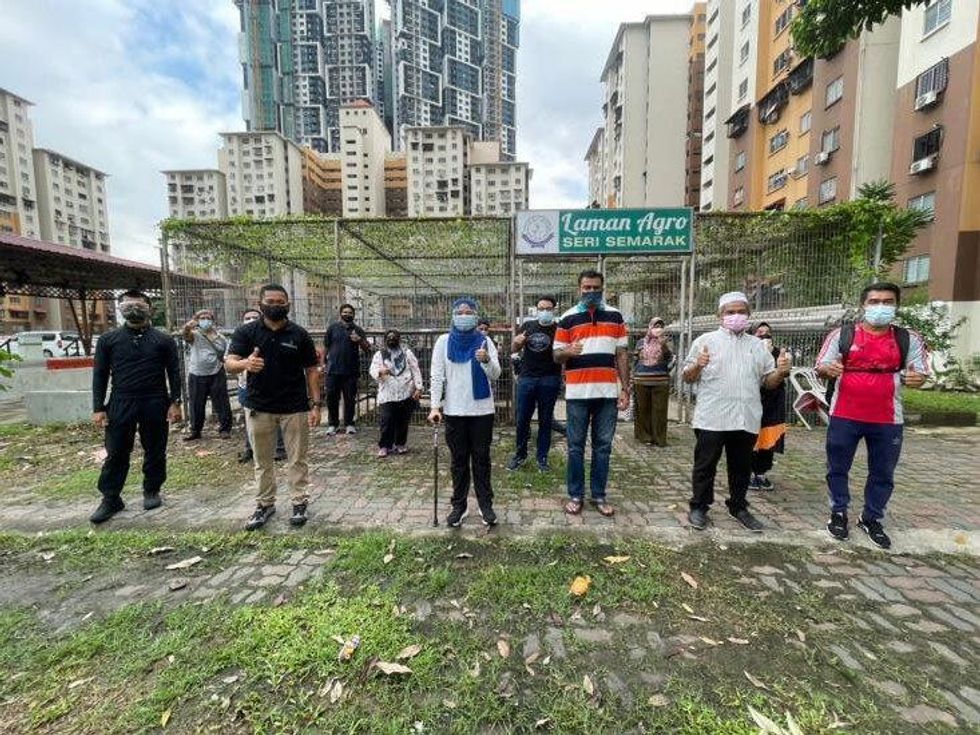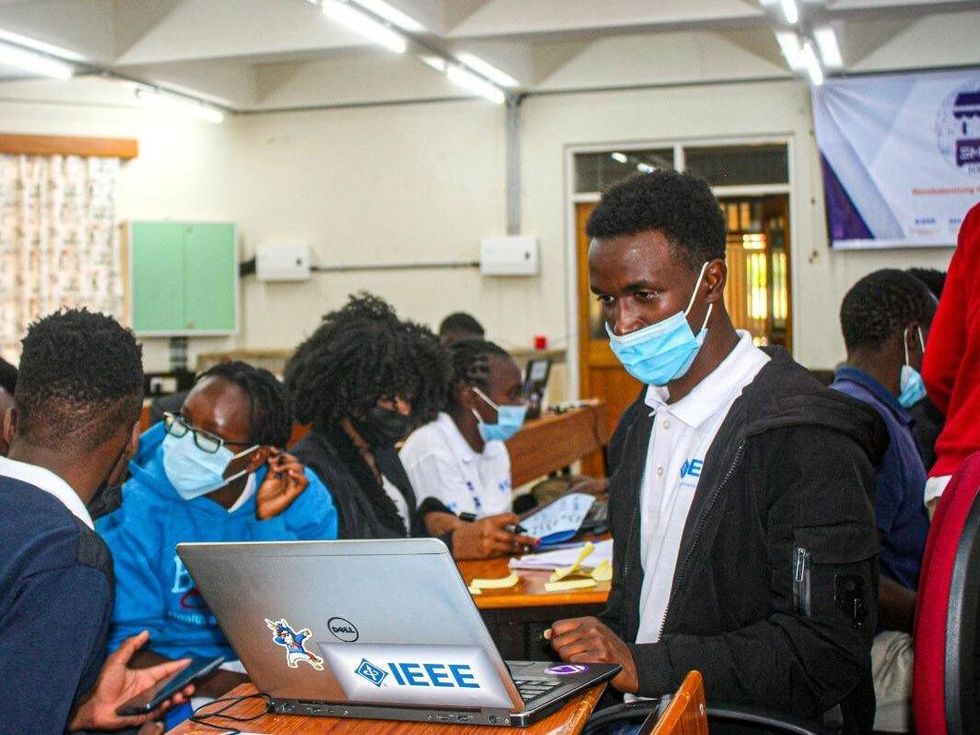IEEE Humanitarian Program Sees Record Growth

The IEEE Humanitarian Activities Committee had a lot to celebrate last year. HAC doubled the membership of its IEEE Special Interest Group on Humanitarian Technology (IEEE SIGHT) program, partnered with prominent organizations, and received a record number of project proposals.
The committee, which reports to the IEEE Board of Directors, focuses on raising awareness of how technically trained people can contribute to society. It also provides training on how to go about doing that. HAC is also focused on building a sustainable development community within and beyond IEEE. In addition, the committee provides funding for humanitarian technology projects and sustainable development activities.
HAC's IEEE SIGHT program, which helps connect IEEE members with underserved communities and local organizations for work on sustainable development projects, now has almost 25,000 members. The number of project proposals increased by almost 50 percent last year. And it spearheaded several engagement opportunities with United Nations agencies.
Last year was specifically very satisfying for me because we are scaling this program to new heights despite challenges the COVID-19 pandemic caused," says IEEE Senior Member Sampathkumar Veeraraghavan, the committee chair.
COLLABORATIONS
The committee participated in several U.N. events last year, including the Multi-Stakeholder Forum on Science, Technology, and Innovation for the SDGs and the Global Sustainable Technology and Innovation Community Conference.
At the STI Forum in May, HAC presented the Feet on the Ground: How to Connect with a Global Network of Local, Technically Trained Partners in the Time of COVID and Beyond workshop. Veeraraghavan and Holly Schneider Brown, director of IEEE Public Imperatives and Corporate Development, told policymakers from around the world about some of the projects the group has funded. They include an automatic soil-monitoring and irrigation system, remote-education resources for underserved communities, and pandemic-related technologies.
HAC members also spoke at other U.N. panels such as the WSIS Stocktaking Repository of Women in Technology, the Science Summit at UNGA76, and the engagement opportunities and policy debate roundtable hosted by IEEE TechEthics and the U.N. Department of Economic and Social Affairs.
In October the committee led a G-STIC panel that provided an overview of several IEEE programs including IEEE Entrepreneurship, which provides mentoring and other resources to members who want to start their own company. The panel, which is available to watch on demand, also covered what IEEE is doing in the area of sustainable development and how technology can help address agricultural, health care, and pandemic-related challenges.
IEEE HAC has increased its capacity to inspire and enable IEEE volunteers worldwide to carry out and support humanitarian projects and sustainable development activities at the local level."
The group has formed relationships with IEEE regions, sections, and groups through its partnership programs. Region 10 was the first to collaborate with the committee. The two groups issued a joint call for proposals in June, seeking prototypes of technologies that address communities' needs in areas such as health care and education.
We wanted to provide an engagement opportunity that enabled our members to [find] a niche for their talent," Veeraraghavan says.
 Volunteers from the IEEE Malaysia Section and IEEE SIGHT members are working to implement an IoT and smart application solution to grow hydroponic plants with real-time monitoring capabilities. The project received funding from IEEE HAC.IEEE SIGHT
Volunteers from the IEEE Malaysia Section and IEEE SIGHT members are working to implement an IoT and smart application solution to grow hydroponic plants with real-time monitoring capabilities. The project received funding from IEEE HAC.IEEE SIGHT
Fifty-six proposals, which addressed challenges brought on by the pandemic, were submitted from seven countries and 17 IEEE sections. Twenty-seven of the projects received funding, including ones that explore robots to aid health care workers and remote tools to monitor patients' vital signs.
IEEE HAC also collaborated with IEEE Women in Engineering. The two groups devised a training program for IEEE WIE chapters to teach them ways to organize humanitarian and sustainable development activities. The program aims to inspire WIE members to participate in HAC activities. A pilot of the program is slated to begin this year.
By developing the new relationships, Veeraraghavan says, IEEE HAC has increased its capacity to inspire and enable IEEE volunteers worldwide to carry out and support humanitarian projects and sustainable development activities at the local level."
MANY FIRSTS
The committee held its first Global Summit in November. The virtual event-first of its kind-brought together IEEE members from around the world who are using or want to use their technical expertise to address sustainable development challenges in their area.
Speakers included 2021 IEEE President Susan Kathy" Land; Paola Vega Castillo, Costa Rica's minister of science, technology, and telecommunications; and Houlin Zhao, the U.N. International Telecommunication Union secretary-general. ITU facilitates focus groups in radio communications, standards development, and telecommunications development to establish guidelines and standards. The summit also included panel discussions on HAC-funded projects, which are available to watch on demand on IEEE.tv.
There were 345 registrants from 48 countries. In a survey HAC conducted after the event, more than 80 percent said they were satisfied with the event. One attendee wrote that they enjoyed learning about HAC's multidisciplinary projects that have been applied in helping to solve or alleviate some of the emergent issues caused by the pandemic."
Raising HAC's visibility seems to be paying off, Veeraraghavan says. Last year nearly 385 project proposals were submitted, compared with the 263 submitted in 2020, according to the committee's annual report. For the first time, IEEE members from China, Ethiopia, Hungary, Italy, Panama, and Thailand submitted proposals.
The committee also for the first time awarded funding for projects in Fiji and Spain. The projects encompass developing information and communication technologies for educational purposes.
According to the report, more than 100 partnerships were formed with local organizations such as hospitals, nonprofits, and universities because of projects funded by the committee.
 IEEE student members from Moi University in Mombasa, Kenya, designed and deployed "smart kibandas"- open huts or cubicles used for informal business. The kibandas will use solar energy to power lights, refrigeration units, and security cameras. The project received funding from IEEE HAC.IEEE SIGHT
IEEE student members from Moi University in Mombasa, Kenya, designed and deployed "smart kibandas"- open huts or cubicles used for informal business. The kibandas will use solar energy to power lights, refrigeration units, and security cameras. The project received funding from IEEE HAC.IEEE SIGHT
To showcase projects that assisted with the pandemic, the committee introduced a collection of articles, the Success Story Portfolio. Projects included a mobile app to map clean water systems, 3D-printed protective equipment for hospitals, and teaching educators how to conduct virtual classes.
The success of such projects showcases how members are solving the grandest sustainable global challenges using their technological innovations," Veeraraghavan says, and building a better future for the global community at large."
HAC plans to showcase both pandemic and non-pandemic related projects in future portfolios.
We are going to continue to invest in global programs where we will foster more member engagement and deliver value for our members," Veeraraghavan says.
To learn more about the committee or to join, visit the IEEE HAC website.